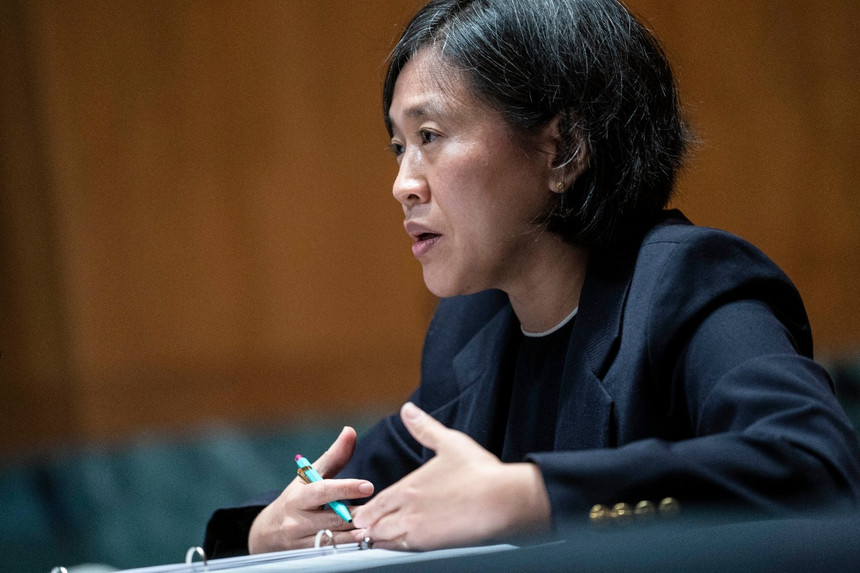Politico |Jakob Hanke Vela June 15, 2021
U.S. invites EU to join forces against China on steel
U.S. Trade Representative Katherine Tai on Tuesday called on the EU to join America in tackling what she said was a national security threat stemming from global steel overcapacity — suggesting that both the EU and the U.S. should work together in restricting imports of Chinese steel.
Since the election of U.S. President Joe Biden, Europe has been calling for America to reverse his predecessor Donald Trump’s global steel and aluminum tariffs, saying that he had no justification to impose duties on the grounds of national security. While Tai indicated America was in no mood to totally reverse Trump’s measures because of the risks posed by Chinese overcapacity, she hinted that there could be room to go easier on Europe if it joined forces on confronting China’s state-backed mills.
“We’re really committed to figuring out how we can work with Europe on a national security threat that we think that Europe faces as well, in terms of the impact of overcapacity in steel and aluminum on the EU market and the EU’s ability to produce.”
Speaking to a small group of reporters, Tai defended the way Washington cited national security to tax steel and aluminum imports, arguing that under U.S. law, that exemption was meant to protect critical industries.
“This action really wasn’t about declaring that Europe is a national security threat. It’s declaring that the impact of global overcapacity driving down prices, distorting markets, undermining the ability of U.S. producers in steel and aluminum to produce — that is a national security threat,” she said, adding that the EU faced the same concern.
But for the free-trade purists in the EU’s trade department, protectionism is taboo even if it is meant to protect a critical industry.
Brussels has even gone as far as challenging American steel tariffs at the World Trade Organization as an improper use of a national security statute — triggering a major headache in Geneva.
But Tai argued that Europe faced the same need to protect its steel mills, which she argued were a bedrock for a large chunk of industrialized economies.
“Steel and aluminum as basic industrial inputs are critical to a country’s national security. I think on that we probably don’t disagree,” Tai argued. “These are industrial products that really are the base for a country’s ability to defend itself, but also to keep its economy going and to build its infrastructure.”
Indeed, the EU has just extended its own steel import restrictions for another three years, under pressure from Berlin, Paris and other steel producing nations.
Applying the Airbus-Boeing playbook
Tai said she would seek to apply the Airbus-Boeing playbook — pausing transatlantic tariffs to jointly tackle China — to end the transatlantic trade dispute that has resulted in both sides slapping tariffs on steel. Brussels is also still levying retaliatory tariffs on $3.2 billion of U.S. products such as jeans and whiskey.
“I want to emphasize that the Section 232 [national security] conversation that we’re going to have, and we’ve actually started with the European Union, that conversation shares the basic fundamentals of the one around large-scale aircraft,” Tai said.
“First of all, it is taking tension right now between the U.S. and the EU, which are these tariffs on both sides of the Atlantic, converting that into collaboration on a shared challenge that we have, which is global overcapacity that is driven primarily by China.”
One of the options discussed by the former Trump administration was to exempt allies such as the EU from tariffs and instead impose quotas. Tai did not directly comment on that approach, but admitted it was a “contradiction” that Washington was taxing EU imports.
“I think that the consternation that we encounter, which is completely understandable, is that in imposing the tariffs at the border, that those tariffs have gone on in a global nature, so that they’ve affected imports that come from everywhere, including from countries that we consider to be strong allies and good friends and that’s the contradiction,” Tai said.
In any case, solving the steel trade war with Europe will not be easy. Not wanting to alienate America’s steelworkers, U.S. President Biden has signaled he is in no hurry to unwind the steel tariffs.
“There are hard questions that we have to face,” Tai said. “There are feelings, deep feelings that we’re going to have to address. And it’s serious. It’s really serious.”

